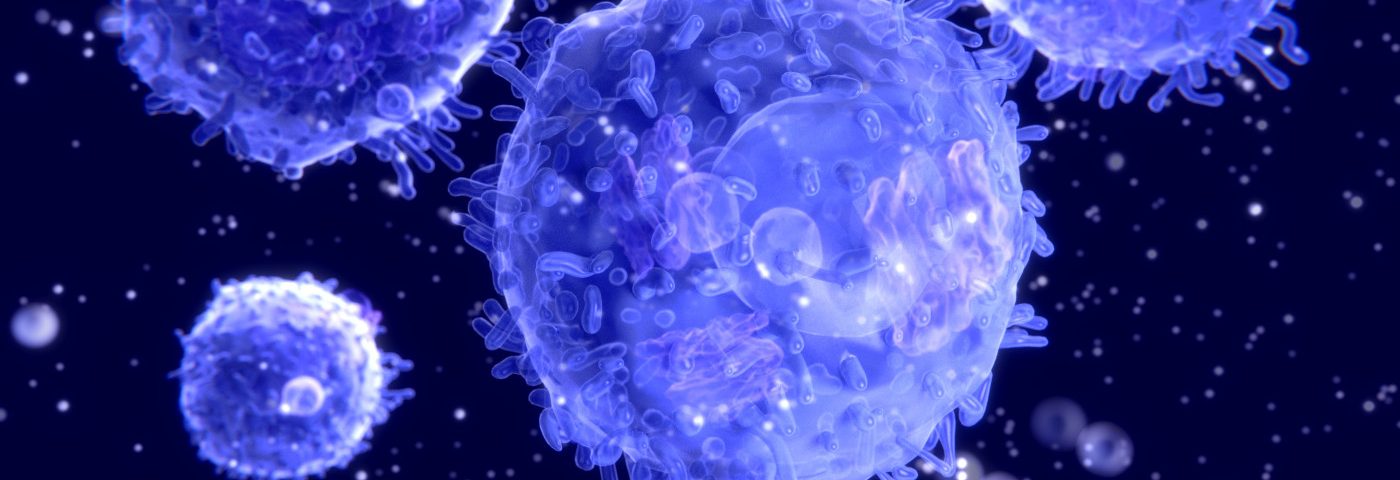An experimental cell therapy for Crohn’s disease that involves taking the patient’s white blood cells, restoring their proper functioning in the lab, and giving them back to the patient, has proven effective in a preclinical study.
Based on the positive results obtained in human cells growing in the lab, a clinical trial testing the treatment’s safety and effectiveness in patients is planned for the upcoming months.
The study “Correction of Defective T-regulatory Cells From Patients With Crohn’s Disease by Ex Vivo Ligation of Retinoic Acid Receptor Alpha” was conducted by researchers at the Guy’s and St Thomas’ NHS Foundation Trust and King’s College London Biomedical Research Centre (BRC). It was published in the journal Gastroenterology.
Many human and animal studies have supported a key role for regulatory T cells (Tregs) in the development of inflammatory bowel disease (IBD). These cells are a specific group of white blood cells that normally work to suppress abnormal immune responses against one’s own tissues.
It is known, for instance, that Crohn’s disease is associated with a deficient number of properly working Tregs at the gut mucosa.
In this new study, researchers found that the Treg cells from Crohn’s patients also produced less of a gut-specific protein called integrin α4β7, which may explain why these cells behave abnormally in the intestine of patients compared with healthy subjects.
Researchers discovered a way to tackle this problem and restore the production of α4β7 integrin by incubating Treg cells with rapamycin (an antibiotic) and a chemical inducer called RAR568.
This molecule binds to receptors of retinoic acid (the molecule that mediates most of vitamin A effects), triggering the activation of specific genes, including genes important for the function of immune cells.
In contact with this inducer, Treg cells begin to behave more like normally functioning Treg cells, suppressing abnormal immune responses and traveling to the gut in more significant numbers.
Based on these positive findings, the team of researchers started a collaboration with specialists at the BRC’s Advanced Therapies Manufacturing Platform to develop a new cell therapy.
The technique consists of taking Treg cells from Crohn’s disease patients, inducing them in the lab with RAR568, and giving them back to patients intravenously.
“This is the next frontier in cell therapy, as we’re going beyond treating the symptoms of Crohn’s disease, and trying to reset the immune system to address the condition,” Graham Lord, MB BChir, PhD, said in a press release. Lord is professor at the NIHR Guy’s and St Thomas’ BRC and senior leader of the study.
“It’s a real home-grown treatment in the sense that we started with observing cells and tissues donated by patients at Guy’s and St Thomas’, have developed a treatment, and are now starting to undertake trials, all at the Trust,” Lord said.
“Anything that could help people with Crohn’s have the confidence to go out and get back to being the people they were destined to be would be a game-changer,” said Rachel Sawyer, a 50-year old Crohn’s disease patient being treated at Guy’s and St Thomas’.
The treatments available for Crohn’s disease work only in some patients and have potentially serious side effects, said Peter Irving, MD, consultant gastroenterologist and an author of the paper.
“This research paves the way for a trial of using patients’ own cells to treat their Crohn’s disease and we look forward to offering people the chance to take part in the very near future,” he said.
The trial, called Tribute Trial, will test whether the treatment is safe and effective for treating Crohn’s disease. It is planned to start in the next six months. More information is available here.

